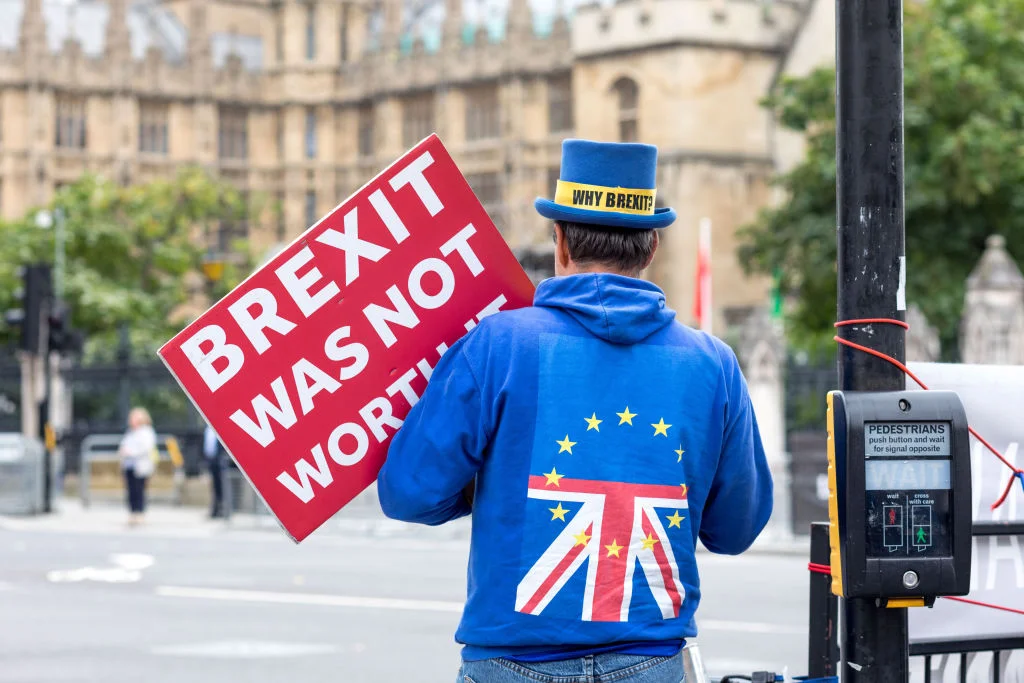The outcome of the 2016 European Union membership referendum, favoring Brexit, remains a significant political event in the United Kingdom’s twenty-first-century history. Extensive discussions continued on various topics well after the referendum held on June 23, 2016.
Cameron’s Initial Plan
David Cameron had initially planned the referendum as a strategy to weaken the anti-EU faction within his own party through its failure. However, he miscalculated the level of public support for withdrawal, especially among Labour Party voters. Besides immigration, the economy, sovereignty, and anti-establishment politics, there were numerous other factors at play.

Referendum Outcome
The referendum’s outcome saw 51.8% of the votes cast in favor of withdrawal from the European Union. The formal withdrawal from the European Union took place at 23:00 on January 31, 2020, nearly three years after Theresa May triggered Article 50 of the Lisbon Treaty on March 29, 2017. This webpage offers a comprehensive examination of the arguments put forth by the Leave and Remain campaigns.
Survey on Leave Electors
Lord Ashcroft’s polling team questioned 12,369 referendum voters on referendum day. This survey revealed that “the principle that decisions regarding the United Kingdom should be made in the United Kingdom” was cited as the primary reason for desiring withdrawal by 49% of leave voters. This suggests that “by the UK” should make decisions for 66 million UK individuals, not “on behalf of 508 million EU residents.” Reports suggest that EU membership shifting decision-making away from “the people” towards regulatory bodies’ dominance, particularly the European Commission, played a significant role in motivating leave voters. This perception was observed in a pre-vote survey by Ipsos MORI, where 32% of respondents ranked the European Union as the third most significant issue facing the United Kingdom immediately before the vote.
Public Opinion on Brexit Agreement
Two years later, in December 2018, Survation pollsters asked 1,030 individuals for their opinion on the Brexit agreement negotiated by British and European Union leaders regarding sovereignty. Of the respondents, 35% approved, while 24% did not; 41% were either neutral or uncertain. This suggests that the majority of individuals were either indifferent to the Brexit process delay or lacked a stance on the matter.
Differences in Party Factions
In July 2018, a survey conducted by pollsters affiliated with ‘UK in a Changing Europe,’ an organization specializing in impartial research on UK-EU relations, highlighted notable distinctions between the Remain and Leave factions within the Conservative and Labour parties. Leave voters prioritized control over British laws and regulations as the second most important factor for the next five years, following the ability to independently negotiate trade deals. In contrast to immigration, leave voters favored trade by 59% to 41% and 67% to 33%. They also preferred trade and control over robust economic growth by 69% to 31% and 61% to 39%, respectively.
Brexit’s Impact on Imports
The United Kingdom has, for the fifth time in the past three years, postponed health and safety inspections of food imports from the European Union due to concerns that additional controls would disrupt vital supplies and increase food prices.
Economic Consequences
The latest delay reflects the ongoing challenges faced by the United Kingdom following its withdrawal from the European Union in January 2020. These challenges have strained British businesses financially and negatively impacted trade, investment, and ultimately, economic growth.

Brexit has contributed to high inflation in the UK by disrupting its most critical trading relationship and devaluing the pound, raising import costs. Research from the London School of Economics indicates that Brexit has contributed to approximately one-third of food price inflation in the UK since 2019, costing an additional £7 billion ($8.8 billion) for the country’s grocery bill.
Government’s Cautious Approach
The UK government is extremely cautious about taking any action that could exacerbate the situation. The announcement on Tuesday emphasized that the extension of deadlines would provide stakeholders with more time to prepare for new checks.
Delays in Border Checks
Health certification for “high-risk food” and “medium-risk” animal and plant items will begin in January 2024 instead of October. Physical examinations have been rescheduled for the conclusion of April, while the final controls concerning safety and security declarations on imports from the European Union have been delayed until October 2024.
Industry Reactions
Certain industry groups in the United Kingdom welcomed the most recent border check delays, asserting that they will reduce supply chain disruptions and expenses. However, they also implored the government to provide businesses with certainty, as they have repeatedly anticipated checks only to have their deadlines postponed.
Shane Brennan, CEO of the Cold Chain Federation, stated that while the delay was the “correct course of action,” it dealt “yet another blow” to the government’s credibility and that “this confusion at the top” would hinder efforts to ensure EU businesses were prepared to comply with the new regulations.





